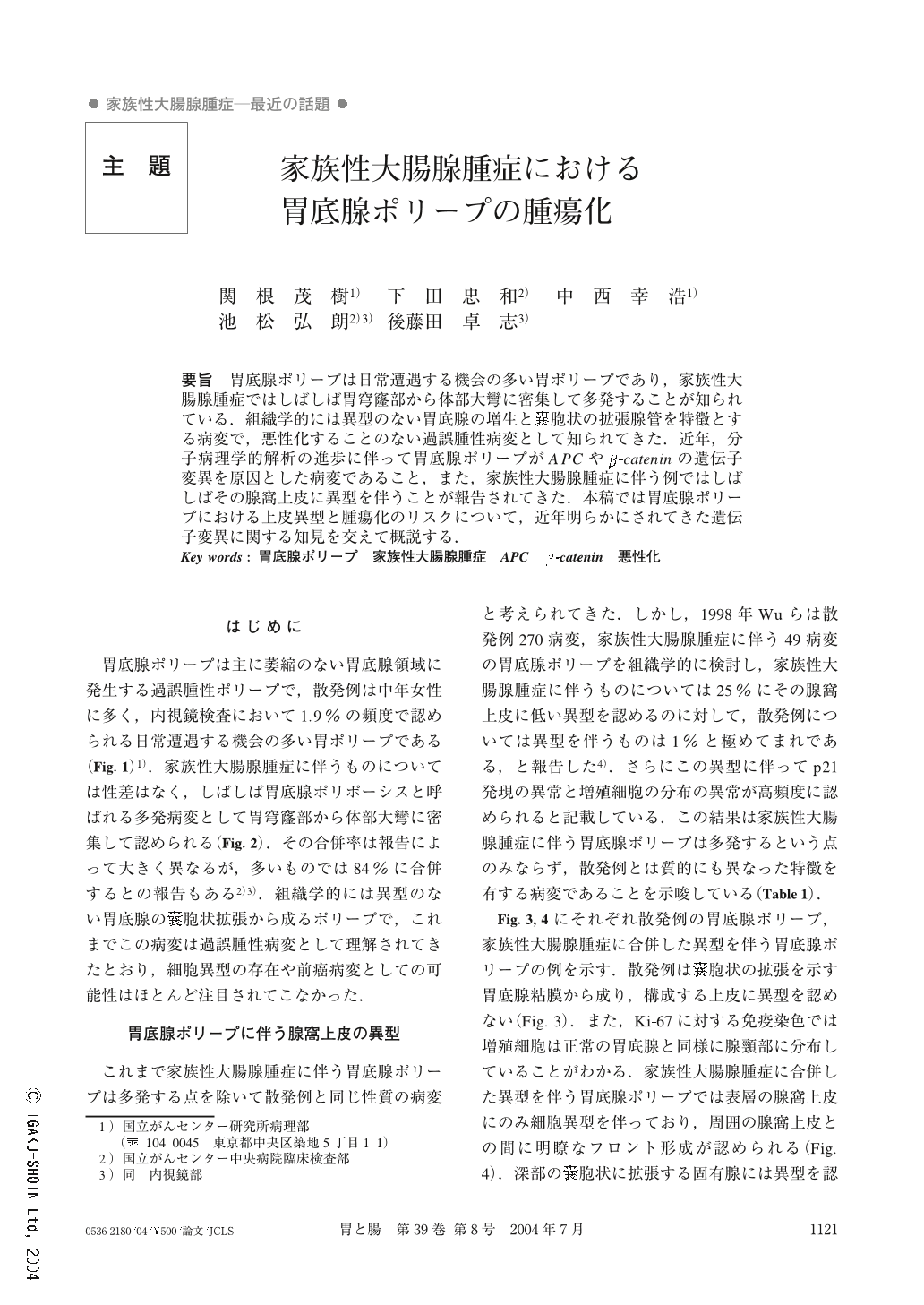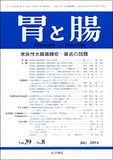Japanese
English
- 有料閲覧
- Abstract 文献概要
- 1ページ目 Look Inside
- 参考文献 Reference
- サイト内被引用 Cited by
要旨 胃底腺ポリープは日常遭遇する機会の多い胃ポリープであり,家族性大腸腺腫症ではしばしば胃穹窿部から体部大彎に密集して多発することが知られている.組織学的には異型のない胃底腺の増生と嚢胞状の拡張腺管を特徴とする病変で,悪性化することのない過誤腫性病変として知られてきた.近年,分子病理学的解析の進歩に伴って胃底腺ポリープがAPCやβ-cateninの遺伝子変異を原因とした病変であること,また,家族性大腸腺腫症に伴う例ではしばしばその腺窩上皮に異型を伴うことが報告されてきた.本稿では胃底腺ポリープにおける上皮異型と腫瘍化のリスクについて,近年明らかにされてきた遺伝子変異に関する知見を交えて概説する.
Fundic gland polyp is one of the most common gastric polyps. In familial adenomatous polyposis patients, fundic gland polyps tend to be more numerous than those found in sporadic cases, and occur in the fornix and the greater curvature of the gastric body. Fundic gland polyp is histologically characterized by proliferation and cystic dilatation of the fundic gland mucosa, and it is known to be a hamartomatous lesion with no malignant potential. Recently, progress in molecular studies have revealed that fundic gland polyp is caused by mutation of APC or β-catenin. Recent reports also have described frequent dysplastic change in its foveolar epithelium. We briefly review recent reports, including molecular studies, regarding dysplasia and tumorigenesis related to fundic gland polyp.
1) Pathology Division, National Cancer Center Research Institute, Tokyo
2) Clinical Laboratory Division, National Cancer Center Hospital, Tokyo
3) Department of Endoscopy, National Cancer Center Hospital, Tokyo

Copyright © 2004, Igaku-Shoin Ltd. All rights reserved.


